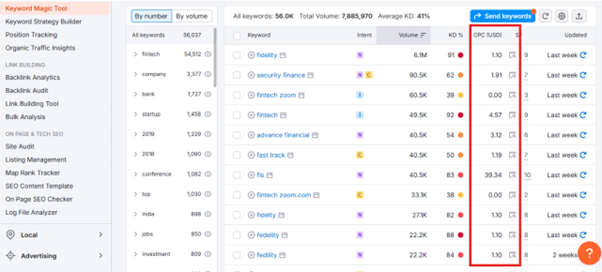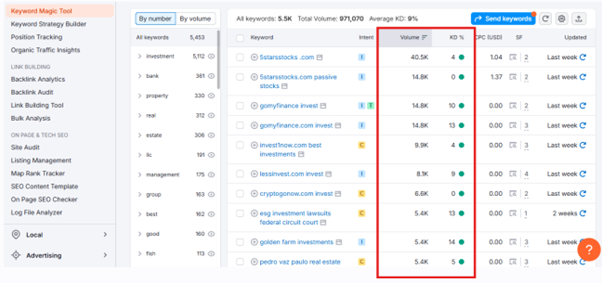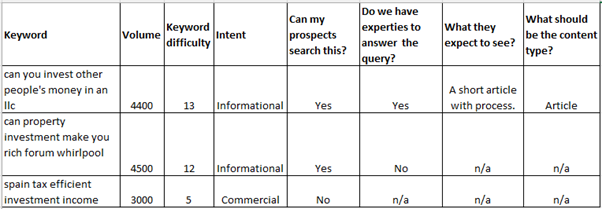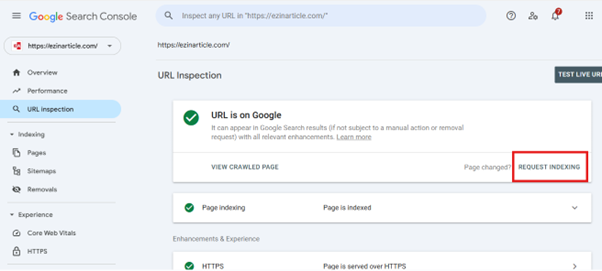Understanding the Competitive Landscape of Fintech SEO
The fintech industry is one of the most competitive sectors in digital marketing. If you are familiar with CPC (Cost Per Click), you already know that financial-related keywords tend to have high CPC rates.
This makes ranking in the fintech sector particularly challenging, requiring a well-structured and strategic SEO approach.
Look at the CPC of some of the Fintech keywords.

If you’re searching for the best SEO guide to optimize your fintech website or product, you’re in the right place.
This guide covers fundamental SEO principles and advanced strategies that have successfully ranked numerous financial websites.
Step 1: Demand Analysis – A Smarter Approach to Keyword Research
Rather than jumping directly into keyword research, we begin with demand analysis. This involves understanding market demand before identifying target keywords.
Why Demand Analysis?
If you’re new to the business, competing against established players can be daunting. Instead, start by ranking for low-competition keywords to build initial traffic and gradually increase your domain authority.
How to Conduct Demand Analysis
- Use a keyword research tool such as Google Keyword Planner, Ahrefs, or Semrush. I am using the Semrush paid tool.

- Enter a seed keyword and filter for low keyword difficulty.
- Sort results by search volume from high to low.
- Identify relevant keywords and create a spreadsheet.
- Ensure that selected keywords have a minimum search volume of 100.
- Ask yourself: “Would my target audience search for this? Can I provide expert insights on it? What they expect to see? What should be the content types?”
Your spreadsheet will look something like this:

Step 2: Understanding Keyword Intent
Now that you have a list of potential keywords, analyze the top five Google search results for each keyword. Determine whether the existing content consists of articles, service pages, or category pages and mention that to the list. This helps identify the search intent:
- Informational: Users seek knowledge. The best approach is to create high-quality, in-depth articles.
- Commercial: The user wants to investigate brand or services.
- Navigational: The user wants to find a specific page or website.
- Transactional: Users intend to take action. Optimize service pages to capture leads.
Pro Tip: If a keyword has an informational intent, create valuable content that answers user queries and then redirect them to a relevant service page.
Step 3: Content Optimization
To stand out in the financial sector, content must be clear, concise, and authoritative. Here’s how to craft compelling content:
- Use simple language – Avoid jargon and keep explanations straightforward.
- Write short sentences and paragraphs – Improve readability and engagement.
- Offer in-depth insights – Provide unique perspectives and data-backed insights.
- Include examples, case studies, and real-world applications.
- Use diverse content formats – Integrate charts, tables, images, and videos.
- Employ bucket brigades – Keep users engaged with transitional phrases like “Here’s the deal” and “Let’s break it down.”
- Incorporate LSI (Latent Semantic Indexing) keywords – Enhance content relevance and ranking potential.
AI-Generated Content & Google’s Policy
Google now permits AI-generated content as long as it serves user intent effectively. However, avoid relying solely on AI without adding human expertise and unique insights.
Step 4: On-Page SEO Optimization
I am suggesting the bare minimum optimization techniques for the FinTech sector to improve search engine visibility. This approach allows you to rank with minimal effort, without needing to implement all the on-page optimization strategies that others recommend.
- URL Optimization – Include the focus keyword.
- Title & Meta Description – Use the focus keyword naturally.
- Keyword Placement – Incorporate focus and LSI keywords in the first few paragraphs.
- Internal & External Linking – Enhance user experience and credibility.
- Readability & Formatting – Ensure clear fonts and mobile-friendly formatting.
Step 5: Monitoring & Adjusting Your SEO Strategy

After publication, Request your URL for indexing in Google search console. monitor performance and track impressions, clicks, and ranking trends. If your page ranks for additional keywords, incorporate them into your content for better visibility.
Step 6: Off-Page SEO for Fintech
Building backlinks is still essential for increasing domain authority, but not all are equally effective. For the FinTech industry, focus on these highly effective off-page optimization techniques.
- Guest Blogging – Publish high-quality content on reputable sites.
- Paid Backlinks – Invest in high-authority backlinks for better credibility.
- Directory Submissions – Submit your site to financial and business directories.
Step 7: Analyzing Traffic & User Behavior
Use Google Analytics to track traffic sources and user behavior. Key metrics include:
- Organic Traffic – Visitors arriving from search engines, providing insights into your website’s performance across different search engines
- Referral Traffic – Visitors coming from backlinks and external sources, helping you analyze the effectiveness of your generated backlinks.
- Session Duration – A measure of content engagement, indicating how long visitors stay on your page. If session duration is low, consider improving your content.
Heatmap Analysis

Tools like Hotjar offer valuable insights into user interactions on your service pages, helping you optimize conversions. Identify areas for improvement and adjust your content accordingly.
Conclusion
Implementing a structured SEO strategy in fintech can significantly enhance visibility and lead generation. By focusing on demand analysis, content optimization, keyword intent, on-page SEO, off-page strategies, and data analytics, you can steadily improve rankings and drive sustainable growth.
Now it’s time to put these techniques into action—optimize, track, and refine your strategy for lasting success!




Leave a Reply